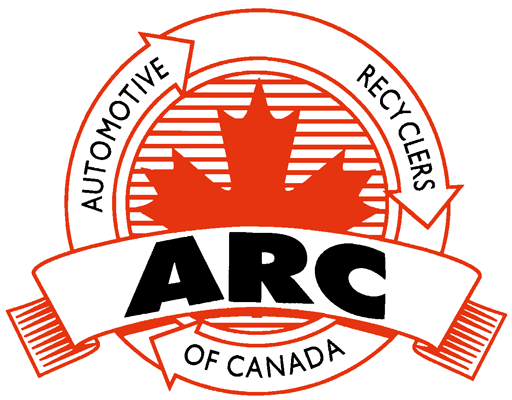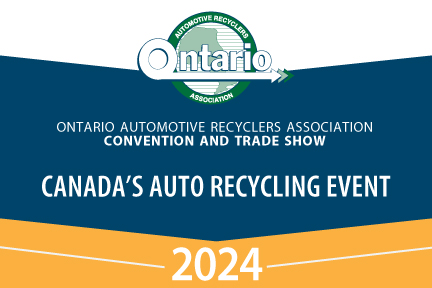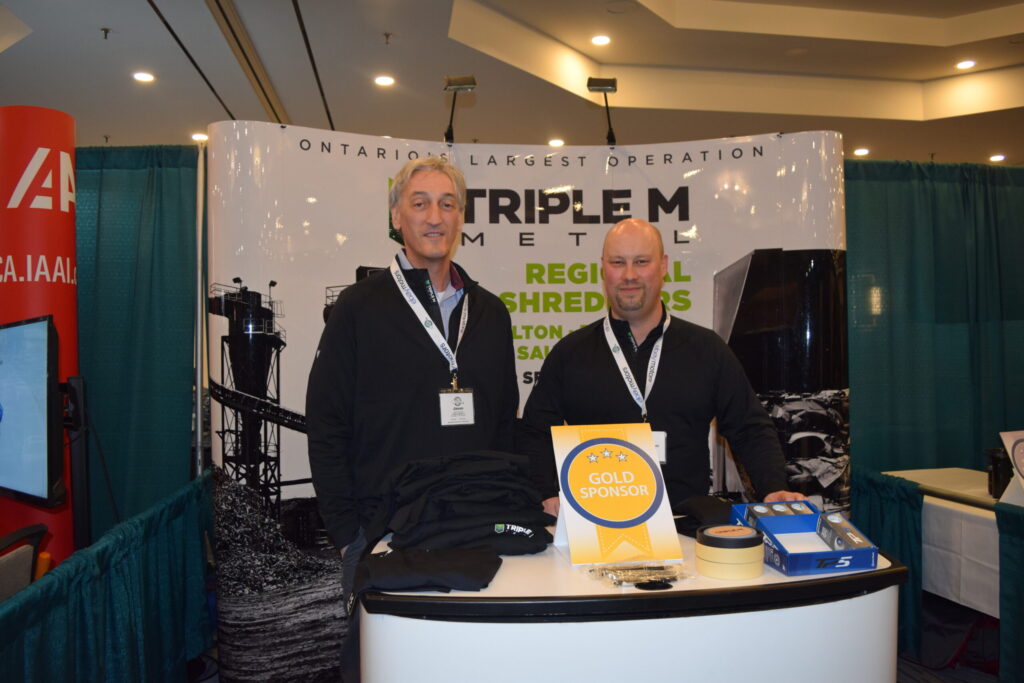Breaking NEWS...
August 12, 2025 ARC Position on Responsible Vehicle Acquisition and Auto Theft Prevention
The Automotive Recyclers of Canada (ARC) is committed to ensuring its members play an active role in combatting auto theft and maintaining the integrity of the end-of-life vehicle (ELV) and salvage supply chain. As theft-related crimes continue to rise across Canada, ARC recognizes the importance of establishing clear and enforceable expectations for responsible vehicle acquisition. While ARC members already operate under professional codes of conduct through their respective provincial associations, we believe this unified national position reinforces our leadership in transparency, compliance, and collaboration with enforcement agencies. more info
July 4, 2025 ARC National Position on EV Battery Recycling and EPR
The Automotive Recyclers of Canada (ARC) welcomes the national expansion of the industry-led EV Battery Recovery Program, spearheaded by Call2Recycle Canada in partnership with participating vehicle manufacturers. This expansion represents a significant milestone toward a more circular and sustainable future for electrified vehicle (EV) batteries in Canada. more info
April 25, 2025 ARC-ARA submit joint letter seeking tariff relief for used auto parts
The Automotive Recyclers Association and the Automotive Recyclers of Canada respectfully requests that used automobile parts harvested from end-of-life motor vehicles be exempted from the recently imposed tariffs under Section 232 of the Trade Expansion Act of 1962. more info
April 16, 2025 Navigating the Impact of U.S. Tariffs on Canada's Used Auto Parts Industry
The recent escalation in trade measures between the United States and Canada has introduced both immediate challenges and long-term considerations for the used auto parts and vehicle recycling sector. As of today, tariffs imposed by the U.S. and Canada are reshaping the flow of automotive goods across the border—and the Automotive Recyclers of Canada (ARC) is actively monitoring and responding to these developments to protect and support our Members. more info
12-22-2024 Roadmap and Implementation Plan for the Management of End-of-Life EVs in Canada
ARC has created the document Roadmap and Implementation Plan for the Management of End-of-Life EVs in Canada with the financial support of Natural Resources Canada’s Canadian Minerals and Metals Plan. The project begins to document where the industry is now, where it needs to be, the gaps that exist, and the tactics to begin to fill those gaps see the industry can transition as smoothly as possible.
more info
Recycling of Plastics from End-of-Life Vehicles in Canada
ARC created a document Roadmap to Increase Recycling of Auto Plastics from End-of-Life Vehicles in Canada for Environment Canada in 2022.
more info
Extended Producer Responsibility (EPR)
ARC has published a Position Statement on Extended Producer Responsibility (EPR) as it relates to the automotive industry.
download (pdf)
End-of-life vehicles in remote Canadian locations
ARC funded the development of a document aimed at helping remote communities deal with end-of-life vehicles (ELVs) that can accumulate there. While the Canadian Automotive Recyclers Environmental Code (CAREC) is a valuable resource for auto recyclers, regulators and interested stakeholders to responsibly retire ELVs, CAREC works well in urban and rural areas where ELVs have a positive value. Unfortunately, ELVs can accumulate in remote communities because the cost of recycling often exceeds the value of the parts and materials.
The document acts as a primer for discussions on effective recycling of remote ELVs.
download (pdf)
A National Approach to the Environmental Management of End-of-life Vehicles in Canada
ARC believes that a national approach to managing ELVs is both timely and necessary. As various levels of government consider ELVs in the context of waste management policy initiatives, it is vitally important that initiatives address the unique characteristics of the existing ELV recycling marketplace. An outcomes-based approach to waste management leads in one direction: the implementation of common decommissioning standard for ELV processors. Applied across the country a national approach will result in a consistent, effective and efficient end-of-life vehicle management program in Canada.
download (pdf)
EPR regulations for Ozone Depleting Substances
Environment Canada is developing draft regulations to manage the end-of-life of ozone depleting substances (ODSs) and their halocarbon alternatives (HFCs and PFCs). In general, the ARC indicated its support for the general concept of extended producer responsibility for ODSs. It indicated that ARC members subscribe to an approach to end-of-life vehicle (ELV) management that both maximizes their economic value through and recovery of reusable and recyclable parts and materials and minimizes the environmental burdens of ELV management through recovery of substances of concern.
download (pdf)
Mercury Switch Removal
Mercury emissions from the environment are transformed through biological processes to methylmercury, a persistent substance which bio-accumulates in the food chain and is particularly toxic to humans and wildlife. A significant source of mercury has been placed in motor vehicles by the auto manufacturers as mercury switches for convenience lighting. This practice finally ceased in 2003. A substantial number of vehicles on the roads for the next 10 to 15 years will contain these switches. When these vehicles are crushed and shredded by the scrap metal industry for metals recovery, the mercury is released into the environment.
ARC supports the removal of mercury switches from vehicles via the Switch Out Program, co-ordinated by the Summerhill Impact on behalf of the Canadian Vehicle Manufacturers Association (CVMA) and the Canadian Steel Producers Association (CSPA). Further information can be reviewed at: www.switchout.ca
ARC also supports the mercury-free scrap buying policies of the CSPA and its Members – www.switchout.ca/announcements.
Non-Deployed OEM Airbags
The re-use of non-deployed OEM airbags is an economical and safe alternative to new OEM airbags when airbags need replacing after an accident when proper care is taken to remove, store, catalogue, ship, and install an airbag. The Canadian Council of Motor Transport Administrators (CCMTA) has endorsed Guidelines to safely re-use “recycled” OEM airbags. ARC supports the CCMTA Guidelines and is in the process of educating recyclers, insurers and collision repairers regarding the content and implementation of those Guidelines.
download (pdf)
Contact ARC
256 East & West Line RR3
Niagara on the Lake, ON L0S 1J0
Wally Dingman, Executive Director









